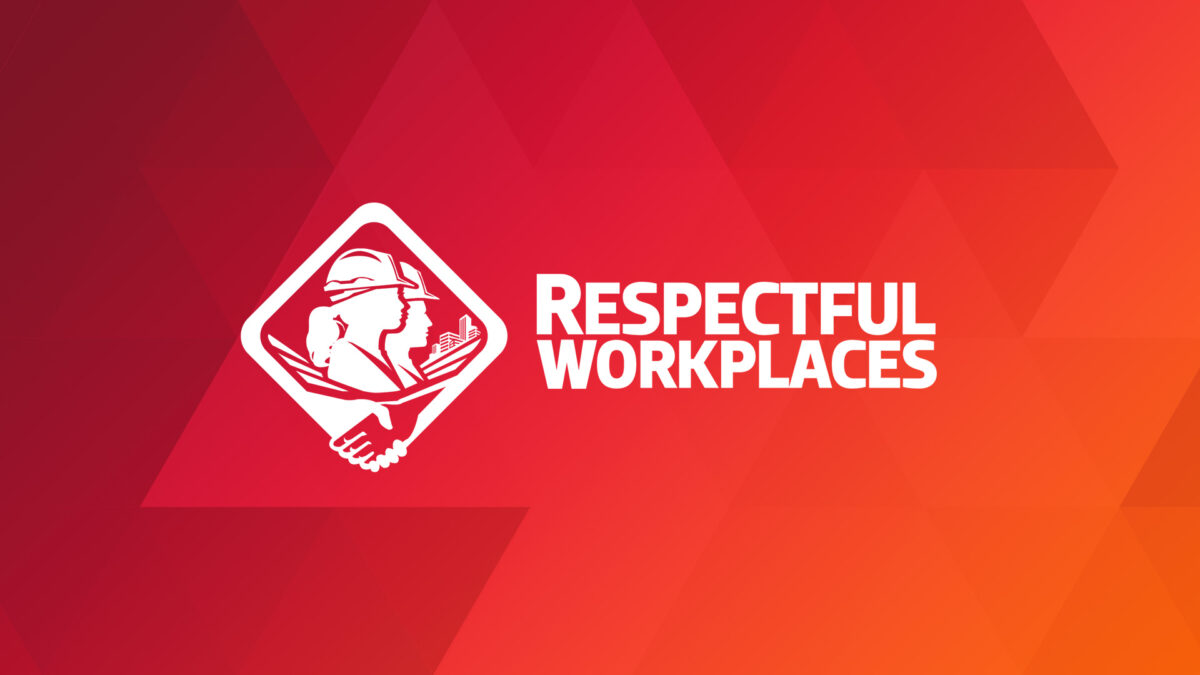Does your organization have a vision capable of reversing the decline of respect?
![Did you know? Workers worldwide report more disrespectful and uncivil behaviour each year. [Image of distraught worker in foreground with co-workers talking behind her back.]](https://www.buildforce.ca/wp-content/uploads/2024/03/Blog207120DYK20Eng2028229.png)
According to The Wall Street Journal, “The technology revolution of social media has brought with it significant gains; however, an important casualty has been the decline of respect in discourse and behaviour among highly visible leaders. In the age of social media, some of the wealthiest and most famous people on Earth have found that the best way to gain even more attention is to display contempt for ordinary standards of discourse and behaviour.”*
Perhaps it’s not surprising that a study of nearly 20,000 employees worldwide by Christine Porath, a researcher at Georgetown University, found that respondents ranked respect as the most important leadership behaviour. Yet, they report that the number of incidents of disrespect are rising steadily each year. These include publicly mocking and belittling people, ignoring people, and teasing in ways that sting.
This has consequences for workplaces. Research shows that 80% of workers who are treated disrespectfully spend significant work time ruminating on the bad behaviour, and 48% deliberately reduce their effort.
Furthermore, while all workers can experience disrespect, members of traditionally under-represented groups, such as women, and members of LGBTQ2S+, Black, Indigenous, and People of Colour communities tend to experience greater incidents of violations of respect than the general population because of their demographic characteristics.
For example, Black professionals are nearly four times as likely to encounter disrespectful behaviour in the workplace than white professionals (58% vs. 15%), and 25% of women across all industries, and 47% of women in traditionally male-dominated industries, report experiences of condescension, sexism, and inappropriate behaviour when working with male coworkers.
Without specific measures to address the experience of members of these groups, not only will the workplace not be respectful of all workers, but employers may struggle with worker morale, productivity, and retention issues if corrective actions are not taken.
To reverse the trend of disrespectful and uncivil behaviour, leaders must develop a compelling and comprehensive vision of a respectful and inclusive workplace culture. And because workplace culture is the result of many factors, transforming it requires a robust approach.
Five traits for reversing the decline of respect
There are five interrelated traits that together can create a respectful and inclusive workplace culture capable of reversing the decline of respect. Each trait requires transformation at the individual and systems level.
1. All people are treated fairly.
- In order to treat all people fairly, organizations must strive for “substantive equality”: the outcome of a policy or program must result in equal access to opportunities for all qualified people.
- For example, women often experience unintentional systemic barriers in recruitment. Research shows that when reviewing identical resumes, both men and women prefer to choose a candidate with a male name over one with a female name by a ratio of two to one.
2. Difference is acknowledged and valued.
- Leading organizations recognize that members of traditionally under-represented groups can bring powerful insights to policies and decisions.
- For example, research has found that the presence in a team of someone with a different gender, background, and circumstance will cause the team to come to a meeting more prepared and to think through more options.
3. Communication is open and shows consideration for the rights and feelings of others.
- Research shows that workers are more engaged in organizations in which they can speak up with ideas, questions, or concerns without the fear of negative consequences. However, in respectful and inclusive workplaces, leaders recognize that a speak-up culture does not mean “anything goes.”
- In respectful and inclusive organizations, conversations show consideration for the rights and feelings of others. (See blog 67 for an in-depth discussion of effective and important conversations.)
4. Disrespectful behaviour is addressed promptly.
- When violations of respect such as discrimination, harassment, bullying, and violence are not addressed promptly, disrespect becomes integrated into the unspoken rules of the workplace and such incidents will increase, possibly creating a poisoned workplace.
5. A culture of empowerment and cooperation exists.
- According to Catalyst, empowerment is not something that a manager can “give” to a worker; rather it describes a workplace culture in which all team members have what they need to succeed and flourish at work.
Creating a respectful and inclusive workplace has never been more important. Because disrespectful behaviour is on the rise, organizations must create a compelling and comprehensive vision and program capable of reversing the trend. The result will be workers who can be their best at work.
Organizations that want to ensure their workplace is respectful and inclusive could consider including the Working in a Respectful and Inclusive Workplace online course as part of their respectful and inclusive workplace program.
Resources:
- * Kirsch, Adam. “The Rise and Fall of Respectability.” The Wall Street Journal. Saturday/Sunday, December 10-11, 2022, Pages C1-C2.
- CoQual. “Being Black in Corporate America: An Intersectional Exploration.” 2019. See https://coqual.org/wp-content/uploads/2020/09/CoqualBeingBlackinCorporateAmerica090720-1.pdf.
- Ontario Human Rights Commission. Fact sheet #1: The Ontario Human Rights Code. See Fact Sheet #4: Poisoned environment. www.ohrc.on.ca/en/students%E2%80%99-handouts/fact-sheet-1-ontario-human-rights-code#:~:text=It%20states%20that%20every%20person,and%20recreation%20organizations%20and%20facilities.
- Phillips, Katherine W., Katie A. Liljenquist, Margaret A. Neale. “Better Decisions Through Diversity.” Kellogg School of Management at Northwestern University, 2010. See https://insight.kellogg.northwestern.edu/article/better_decisions_through_diversity.
- Porath, Christine. Mastering Civility: A Manifesto for the Workplace. New York, U.S.A., Grand Central Publishing, 2016.
- Statistics Canada. “Workers’ experiences of inappropriate sexualized behaviours, sexual assault and gender-based discrimination in the Canadian provinces, 2020.” See: https://www150.statcan.gc.ca/n1/pub/85-002-x/2021001/article/00015-eng.htm.
- Steinpreis, Rhea E., Anders, Katie A., Ritzke, Dawn. “The Impact of Gender on the Review of the Curricula Vitae of Job Applicants and Tenure Candidates: A National Empirical Study”. (1999). Sex Roles, Vol. 41, Nos. 7/8.
- Thorpe-Moscon & Ohm, J. (2021). Building Inclusion for Indigenous Peoples in Canadian workplaces. Catalyst. See: www.catalyst.org/research/inclusion-indigenous-peoples-canada-workplace.
Read from the beginning. Click here to start at Part 1.
What can an effective Respectful and Inclusive Workplace Program deliver?
- Become an employer of choice – attract, retain, and advance top talent from all sources of labour
- Unlock collaboration and innovation – create high-performing teams through diversity of thought and experience
- Build your brand – your organization will gain a competitive edge as a leader and innovator
Get started today!
The BuildForce Canada Online Respectful and Inclusive Workplace Toolkit includes:
- the Respectful Workplace Online Self-Assessment Tool to assist organization leadership in assessing their current situation and identifying where they may need to make changes
- the Respectful Workplace Policy Framework and Implementation Guide to assist organizations in creating and implementing a policy that supports a respectful and inclusive workplace
- the Respectful Workplace Online Training Course to train workers on how to create and support a respectful and inclusive workplace
- the online course Introduction to Understanding Systemic Racism: A Guide for Leaders and Managers
All the resources you need to create and support a respectful and inclusive workplace!

Respectful and Inclusive Workplaces
